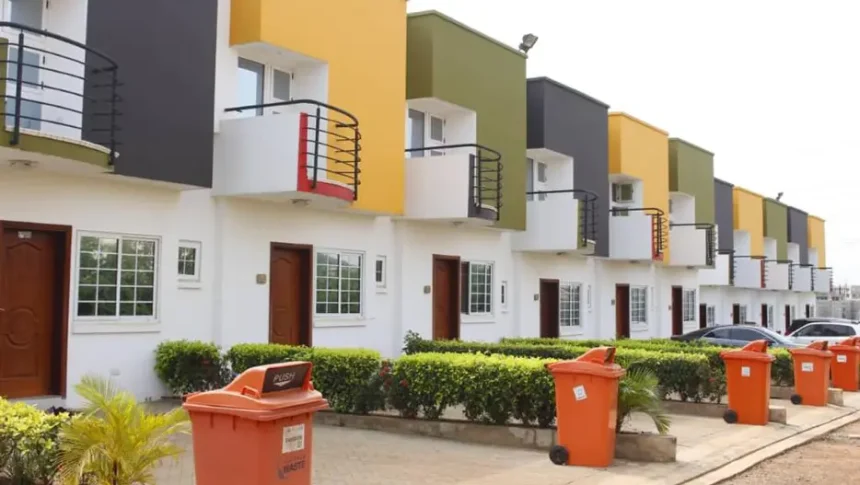By Adelani Adewuyi
As a major oil-producing nation, it is expected that Nigeria’s economic development would be rapid. Instead, our economic standing remains sluggish, considering its rich natural and human resources.
Almost immediately after independence in 1960, Nigeria became enveloped in an unhealthy and unstable political, social and economic order, characterised by incessant military incursion, inconsistent policies and governance. Frequent changes in government, particularly before 1999, led to the lack of a stable economic framework and weak institutional structures, which never allow for any long-term planning, stable and sustainable economic development.
Twenty-six years of uninterrupted democracy have seen Nigeria navigate the labyrinth landscape of economic reforms, policy innovations, and development strategies aimed at propelling the nation to a lofty height of economic stability, yet Nigerians have no inspiring story to tell. Nigerians are yet to be relieved of excruciating economic pains, with over 100 million Nigerians wallowing in abject poverty. World Bank in a recent report stated that poverty rate among rural Nigerians has risen to 75%, and that poverty will grow by 3.6 percent points by 2027. This is disheartening.
Nigeria’s economic policy narrative under the present administration is one of bold ambitions, tapered by harsh realities. Attempts by the administration to reduce the nation’s overly dependence on the oil sector by pushing through a series of market-oriented measures have led to sharp rise in the cost of living.
These policies were aimed at reducing the government’s role in the economy, encouraging private sector participation, and attracting foreign sector investment. The tall and short of it is that government sought to push economic recovery and sustainable development through the policy decisions. The trajectory of these policies, highlighting remarkable successes and failures, provides valuable lessons for future policy- making directions.
Although the economic outlook is showing signs of gradual recovery after years of turbulence, the projected growth remains far below what is required to transform the nation’s living standards. The citizens continue to grapple with biting hardship, even as the government reaffirmed its commitment to driving economic transformation, and improving financial stability.
As the government pushes with determination, its policies on economic transformation, I suggest it looks more closely in the direction of real estate, with a resolve to harness its potential amidst formidable obstacles.
Real estate can improve and transform Nigeria’s economy and catalyze it on the path of sustainable development. That is why the more developed nations of the world leverages real estate to grow and develop their economies. In the United States of America for instance, real estate sector is a major component of it’s economy, driving its GDP growth and economic activities, such as job creation and consumer spending.
Real estate can play a more critical role in our economy. It can contribute more remarkably to the nation’s GDP, and can actually oil and speed up economic growth and development in a very significant manner. If properly harnessed, and under a visible, clear-cut and well-articulated policy direction regime, real estate will transform Nigeria’s economy more rapidly.
Nigeria real estate market is not only dynamic, it remains a choice destination for local and international investment, with huge potentials and returns. Nigeria’s over 200 million population, and rapid urbanization are makes the sector viable for investment. Shelter is one of the basic needs of man, yet housing is about the most difficult to access in Nigeria.
Thousands of Nigerians across the major cities of Nigeria are in search of decent and affordable accommodation, and even when they find one, the cost of rent is out of reach for many. The United Nations estimates that Nigeria needs over 20 million housing units to close its housing deficit. This figure shows the enormous gap between demand and supply in the sector.
The import of this is that housing deficit provides an opportunity for investment. Infrastructure development enhances real estate development, which in turn positively impacts the economy, as its multiplier effect leads to increased investment, commerce, job and wealth creation.
The ongoing Lagos-Calabar Coastal Highway, Sokoto- Badagy Expressway, the proposed Lagos 4th Mainland bridge and several other infrastructural projects in the country will open up the corridors these roads passes for real estate investment. Upon completion of these projects, there will be more opportunities for investment, numerous employment opportunities across various skills and professions, and people will have means of livelihood.
Economic activities would spring up, when people receive incomes, they will be able to pay tax, which will be injected back to the economy, then you have the benefits of the multiplier effects, the value chains, and businesses, both corporate and individual will thrive. And even the value of surrounding infrastructure will be enhanced.
Although not yet fully harnessed, and having a number of challenges, such liquidity, access to mortgage finance, regulatory instruments, availability of land and perfection of documents, real estate industry would keep expanding, and keep attracting investors and developers. The sector would continue to crystallize national economic development, serve as bedrock of wealth creation, with significant contribution to GDP.
With proper land reforms, cheaper loans, improved regulation, engagement and deployment of the right professionals in the real estate environment to handle housing and real estate services, real estate contribution to national economic development would double in the next decade. Real estate can effectively drive national development, but we must create a more friendly environment for investors, and ensure that the ordinary Nigerian can afford a roof over his head. Nigeria’s real estate market is maturing, all current and potential investors should take a more deliberate approach to real estate.
Source: BusinessDay Nigeria



